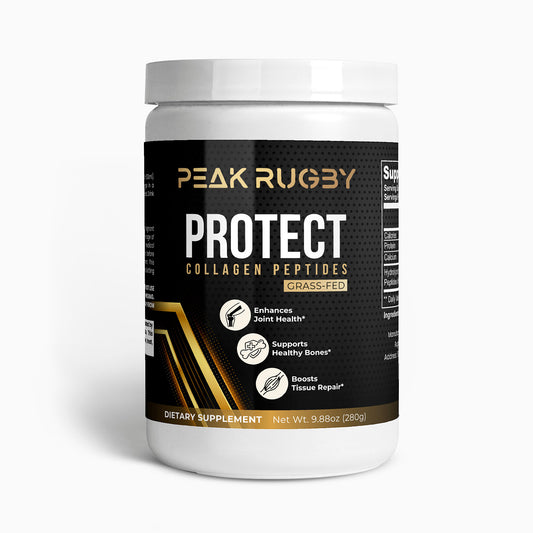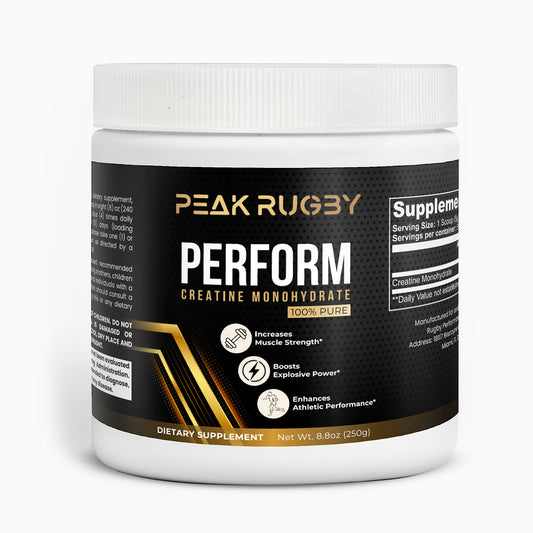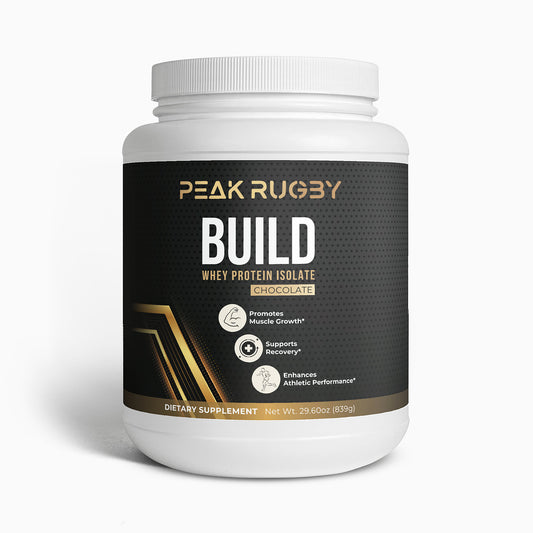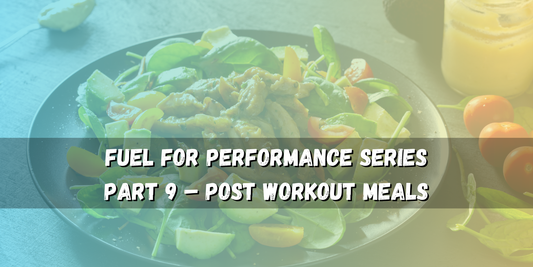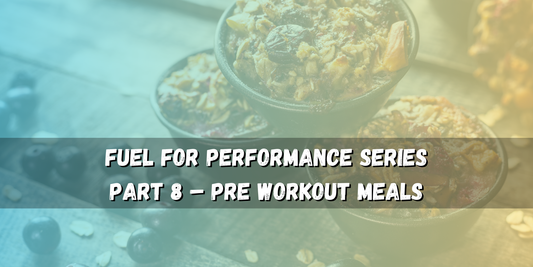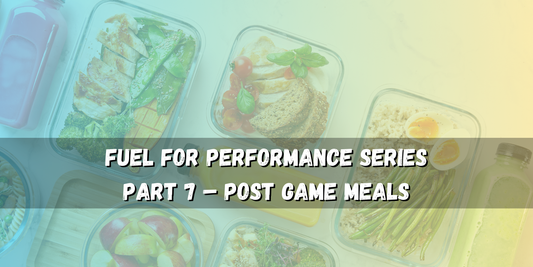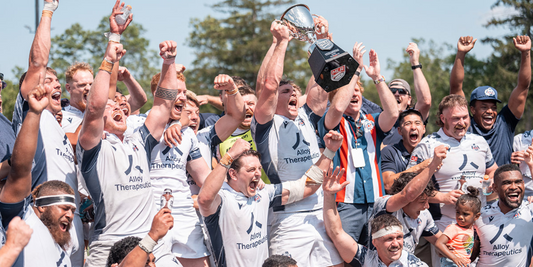Your training session is only as good as the fuel you give your body beforehand. Show up underfed or improperly fueled, and you’re more likely to feel flat, slow, or unmotivated. Show up fueled right, and you’re primed to push harder, move faster, and get more out of every rep.
In Part 8 of the Fuel for Performance Series, we’re breaking down Pre-Workout Meals—what to eat, when to eat it, and how to build the right meal to power your training.
Here’s what we’ve covered so far:
- Part 1: Breakfast – Boost Energy & Recovery
- Part 2: Hydration – Improve Endurance & Delay Fatigue
- Part 3: Carbohydrates – Sustain Power & Stamina
- Part 4: Fats – Enhance Recovery & Brain Function
- Part 5: Protein – Build Muscle & Repair Tissue
- Part 6: Pre-Game Meals – Maximize Energy & Avoid Fatigue
-
Part 7: Post-Game Meals – Rebuild Tissue & Restore Energy
- Part 9: Post-Workout Meals – Recover & Build Strength
Let’s dig into how to properly prepare your body for training.
WHY PRE-WORKOUT NUTRITION MATTERS
1. Increases Energy Availability
The right mix of carbs and protein gives your muscles the fuel they need for power, speed, and endurance—especially during high-intensity sessions.
2. Improves Mental Focus
Training isn’t just physical. Showing up under-fueled can affect concentration, reaction time, and how well you execute drills or strength work.
3. Delays Fatigue
Eating before your workout helps keep energy levels steady, so you don’t burn out halfway through the session.
4. Protects Muscle Tissue
Pre-workout protein helps prevent your body from breaking down muscle for energy, especially during longer or intense workouts.
WHAT TO EAT BEFORE TRAINING
Aim to eat 1.5 to 3 hours before training, depending on the size of the meal and your own digestion speed.
Your pre-workout meal should include:
- Complex carbohydrates for sustained energy
- Moderate protein to support muscle maintenance
- Low fat and low fiber to avoid GI discomfort
- Fluids to start your workout hydrated
Pre-Workout Meal Ideas (2–3 Hours Before):
- Chicken breast + brown rice + green beans
- Turkey sandwich on whole-grain bread + apple
- Eggs + oatmeal + berries
- Whey protein shake (PEAK RUGBY BUILD) + banana + almond butter
Light Snacks (30–60 Minutes Before):
- Rice cake + honey
- Banana + small scoop peanut butter
- Greek yogurt + berries
- Electrolyte drink + low-sugar granola bar
Supplement Stack for Pre-Workout Performance:
- PEAK RUGBY BUILD (Whey Protein Isolate) – Quick-digesting protein for muscle support without heaviness
- PEAK RUGBY PERFORM (Creatine Monohydrate) – Maintain strength and power output for tough sessions

COMMON MISTAKES TO AVOID
1. Training Fasted Without a Plan
Unless you're intentionally doing fasted training (and understand how to fuel around it), skipping your pre-workout meal can limit performance and recovery.
2. Eating Too Close to Training
Big meals within 30 minutes of training can lead to cramping, bloating, and low energy. Stick with light snacks or fluids in that window.
3. Overloading on Fat or Fiber
Even healthy fats or fiber-rich foods can cause digestive discomfort if eaten right before intense movement.
4. Using Pre-Workout Supplements Without Food
Caffeine and other stimulants hit harder when you’re under-fueled—and can lead to energy crashes later in the session.
FINAL THOUGHTS: FUEL FIRST, THEN TRAIN
That wraps up Part 8 of the Fuel for Performance Series. What you eat before training plays a big role in how well you perform and how effectively you recover.
- Eat with purpose
- Time your meals right
- Don’t rely on caffeine or energy drinks
Whether you’re lifting, conditioning, or doing rugby-specific skills—fuel smart so you can get the most out of every rep.
Have a go-to pre-training meal or supplement routine? Drop it in the comments!
If you found this article helpful, don’t forget to:
- Like and share this post with your teammates and fellow rugby fans
- Bookmark the blog to stay updated on the next rounds
- Follow @gopeakrugby on X and Facebook and subscribe to our Youtube Channel for more rugby analysis, match recaps, and insights


